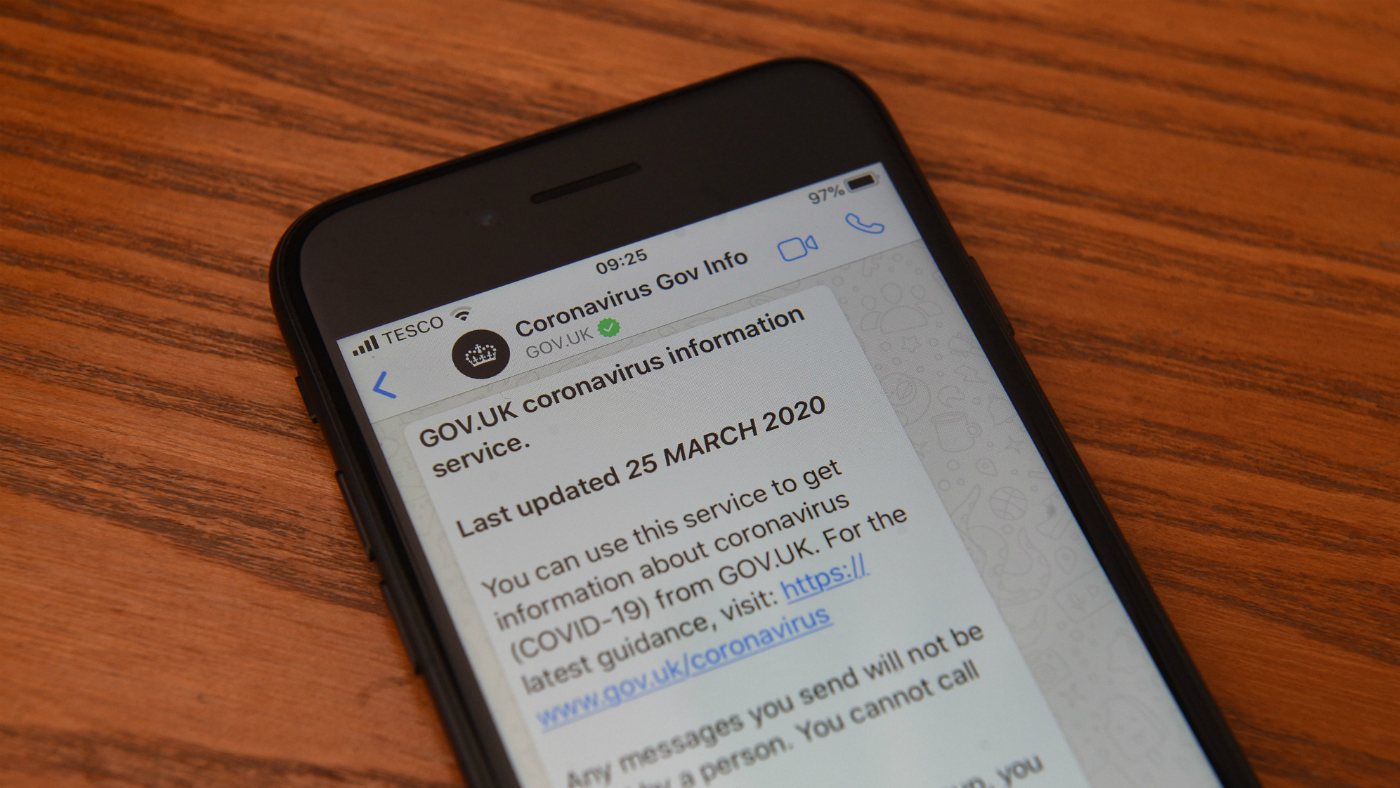Coronavirus: how the UK’s revamped tracking app will work
New software is being trialled months after original version was scrapped by government

A free daily email with the biggest news stories of the day – and the best features from TheWeek.com
You are now subscribed
Your newsletter sign-up was successful
The UK government’s coronavirus contract-tracing app is being trialled in England from today, following months of delays.
The new app is being put to the test after a previous version was scrapped and is intended to support the NHS Test and Trace effort by “keeping a log of others who come into close contact”, the London Evening Standard reports. The rollout will come as a relief to health bosses, whose app plans have been “marred by constant delays and privacy concerns”, the newspaper adds.
Pilot schemes are due to begin on the Isle of Wight - where as the Daily Mail notes, “the first app was tested and failed” - along with one other area in England and among a volunteer group.
The Week
Escape your echo chamber. Get the facts behind the news, plus analysis from multiple perspectives.

Sign up for The Week's Free Newsletters
From our morning news briefing to a weekly Good News Newsletter, get the best of The Week delivered directly to your inbox.
From our morning news briefing to a weekly Good News Newsletter, get the best of The Week delivered directly to your inbox.
Users will be asked to scan barcodes at pubs, cafes and restaurants to provide what the newspaper calls a “virtual diary” of their recent movements. If another person present at the same venue at around the same time then tests positive for Covid-19, the user will be alerted and encouraged to isolate for 14 days, and to book a coronavirus test.
“We need the app to help stop transmission by tracing close-proximity contacts as quickly and as comprehensively as possible, capturing those contacts we don’t know or don’t remember meeting,” Oxford University professor Christophe Fraser, a scientific adviser to the Department of Health, told the BBC.
“The app should enable us to return to more normal daily activities with the reassurance that our contacts can be rapidly and anonymously notified if we get infected.”
According to the Daily Mail, the new app is “drastically different from how the original app was designed to work”.
A free daily email with the biggest news stories of the day – and the best features from TheWeek.com
Abandoned by the government in June, the ditched app was based on an alternative system spearheaded by NHSX, the health service’s digital innovation unit, that used Bluetooth connections to create a log of other phones nearby.
But this system “had to deal with restrictions Apple imposes on how Bluetooth is used by third-party apps”, says the BBC. “As a result, it only detected 4% of iPhones in cases where the app had gone to sleep because the two handsets involved had not been in recent active use.”
The failure “prompted a switch” to the new software, which “does not have this problem” and is based on “Apple and Google’s privacy-centric method of one smartphone detecting another”, the broadcaster reports.
The new version will store data on individuals’ phones, rather than in a centralised government database, like similar apps launched in Germany and other European countries earlier this summer.
-
 Sepsis ‘breakthrough’: the world’s first targeted treatment?
Sepsis ‘breakthrough’: the world’s first targeted treatment?The Explainer New drug could reverse effects of sepsis, rather than trying to treat infection with antibiotics
-
 James Van Der Beek obituary: fresh-faced Dawson’s Creek star
James Van Der Beek obituary: fresh-faced Dawson’s Creek starIn The Spotlight Van Der Beek fronted one of the most successful teen dramas of the 90s – but his Dawson fame proved a double-edged sword
-
 Is Andrew’s arrest the end for the monarchy?
Is Andrew’s arrest the end for the monarchy?Today's Big Question The King has distanced the Royal Family from his disgraced brother but a ‘fit of revolutionary disgust’ could still wipe them out
-
 A Nipah virus outbreak in India has brought back Covid-era surveillance
A Nipah virus outbreak in India has brought back Covid-era surveillanceUnder the radar The disease can spread through animals and humans
-
 Covid-19 mRNA vaccines could help fight cancer
Covid-19 mRNA vaccines could help fight cancerUnder the radar They boost the immune system
-
 The new Stratus Covid strain – and why it’s on the rise
The new Stratus Covid strain – and why it’s on the riseThe Explainer ‘No evidence’ new variant is more dangerous or that vaccines won’t work against it, say UK health experts
-
 RFK Jr. vaccine panel advises restricting MMRV shot
RFK Jr. vaccine panel advises restricting MMRV shotSpeed Read The committee voted to restrict access to a childhood vaccine against chickenpox
-
 RFK Jr. scraps Covid shots for pregnant women, kids
RFK Jr. scraps Covid shots for pregnant women, kidsSpeed Read The Health Secretary announced a policy change without informing CDC officials
-
 New FDA chiefs limit Covid-19 shots to elderly, sick
New FDA chiefs limit Covid-19 shots to elderly, sickspeed read The FDA set stricter approval standards for booster shots
-
 RFK Jr.: A new plan for sabotaging vaccines
RFK Jr.: A new plan for sabotaging vaccinesFeature The Health Secretary announced changes to vaccine testing and asks Americans to 'do your own research'
-
 Five years on: How Covid changed everything
Five years on: How Covid changed everythingFeature We seem to have collectively forgotten Covid’s horrors, but they have completely reshaped politics